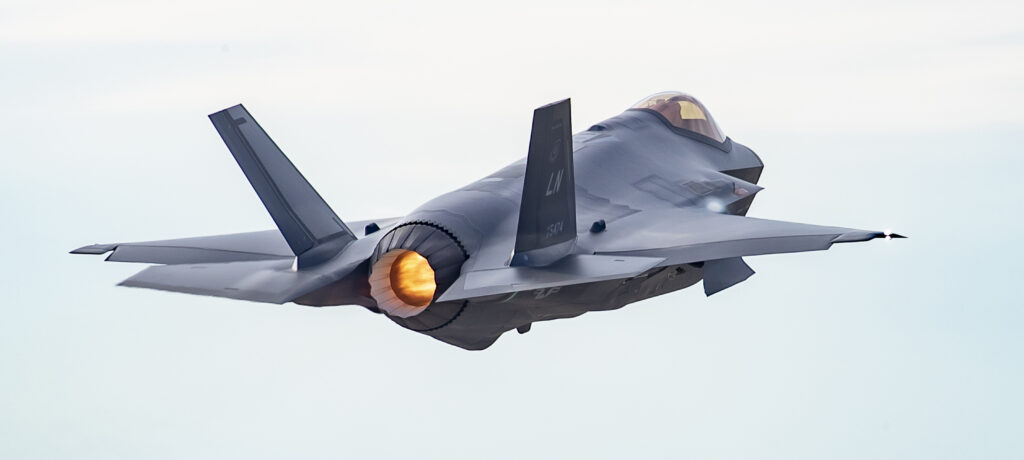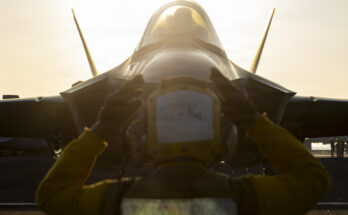
In May 2023, the U.S. rejected Thailand’s bid to procure Lockheed Martin F-35A aircraft, citing production constraints and inadequate existing infrastructure on the receiving end. While partially true, other evidence suggests Thailand’s request was never seriously considered due in part to Bangkok’s tentative, yet growing relationship with China.
The U.S.’s meticulous approach to F-35 approval highlights Washington’s doubts about the strength of global alliances as nations worldwide act cautiously to avoid alienating the major global powers. Notably, countries like Thailand, Turkey, and the UAE serve as key examples where F-35 approval becomes a litmus test, measuring the strength of diplomatic ties with major global powers. Faced with the high costs and strict usage criteria, nations are turning to alternative military systems from China and, in some cases, Europe to fulfill their strategic capability needs. The United States must now weigh the costs of alienating allies and customers at the risk of exposing its most critical technologies.
U.S. contingencies on F-35 approval are designed primarily to safeguard the aircraft’s proprietary stealth technology. Consequently, Washington demands compliance with a variety of security countermeasures, including some its allies find to be far-reaching.
In 2019, Turkey was barred from the F-35 program after acquiring a Russian S-400 ground-based air defense system. Despite being a NATO partner for over 65 years and having invested $1.4 billion into the program, the U.S. refused to deliver the four F-35 aircraft already produced, saying, “Much of the F-35’s strength lies in its stealth capabilities, so the ability to detect those capabilities (via the S-400) would jeopardize the long term security of the F-35 program.”
In 2020, the prospect of selling F-35s to the UAE, following the Abraham Accords, underscored the delicate balance between diplomatic and economic interests. The deal would have included up to 50 F-35s and 18 MQ-9 Reaper drones. Nearly three years later, the deal is still in limbo as the UAE both publicly and privately expresses frustration with the technical requirements and operational restrictions imposed by Washington. The two countries have yet to reconcile an agreement inked in 2019 allowing China’s Huawei to be the dominant supplier of 5G infrastructure in the UAE. U.S. officials are concerned that a Chinese-controlled mobile network near F-35 bases could potentially be used to track and collect intelligence on aircraft and operators. Washington’s uncompromising stance places the UAE in an increasingly familiar position in choosing between a security relationship with the U.S. or an economic relationship with China.
Both Thailand and the UAE are exploring alternative foreign systems to circumvent U.S. restrictions. The U.S. reportedly offered the Royal Thai Air Force its F-16 Block 70 and F-15EX Eagle II aircraft, although the U.S. has barred the participation of these aircraft in joint exercises with China, which occur semi-regularly. Thailand has turned toward acquiring Sweden’s Gripen E fighters as an alternative. Although the UAE has yet to detail a replacement for the F-35, it has turned toward China’s Wing Loong I and II and Turkish Bayraktar TB2 drone to mitigate the loss of the MQ-9 Reaper.
Influenced by events like the Ukraine crisis, the evolving defense landscape has prompted NATO, the EU, and East-Asian states to rapidly address capability gaps. As global tensions escalate, nations with limited offensive capabilities are increasingly seeking advanced stealth jets like the F-35. The U.S. now faces the critical task of evaluating the consequences of its stringent entry barriers into the F-35 program, contemplating whether a more flexible approach would prevent the transformation of “allies” into customers of adversarial technology.

Aja Melville is an accomplished editor and analyst with expertise in open-source intelligence (OSINT) and database management. As the Weapons Editor and Analyst at Military Periscope, Aja has applied her analytical skills and in-depth knowledge in military affairs and global defense sector advancements, particularly focusing on China and the Asia-Pacific region.
Aja's commitment to international relations and Asia-Pacific focus is highlighted by her educational background. She holds a Bachelor of Arts in International Relations and Chinese Language from Bard College, complemented by a Certificate of Advanced International Studies from the Bard Globalization and International Affairs Program. Aja further expanded her linguistic skills with a Certificate of Intensive Language Studies in Chinese (Mandarin) from Qingdao University.




